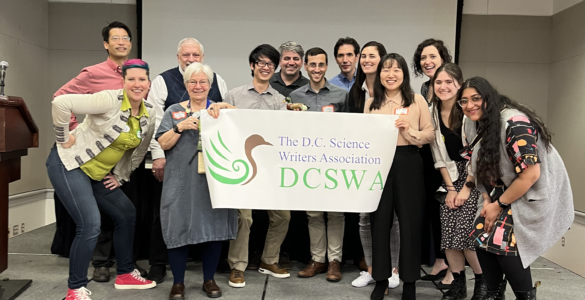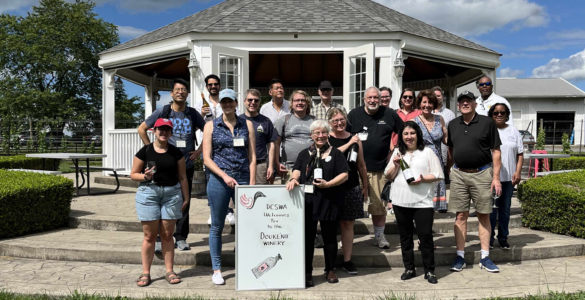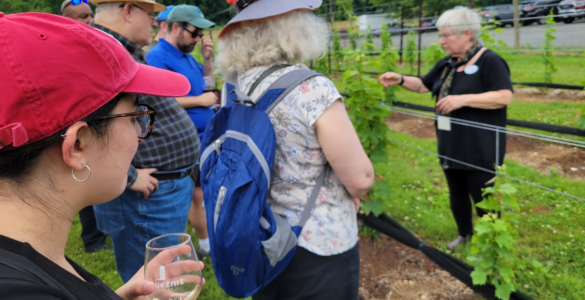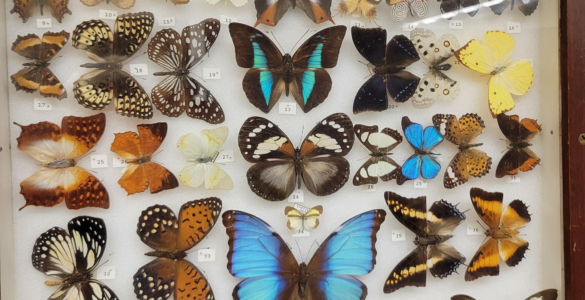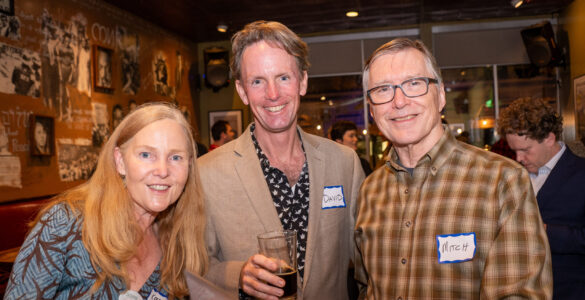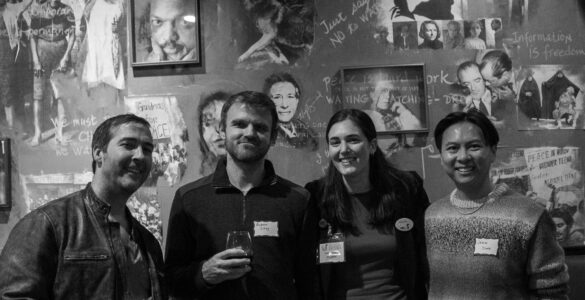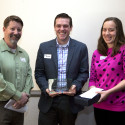For Immediate Release
March 15, 2024
Contact: newsbriefaward@gmail.com
Winners Announced for 15th Annual DCSWA Newsbrief Award
Washington, D.C.—A story about the contribution of a racing heart to the emotion of anxiety won the 15th annual D.C. Science Writers Association’s Newsbrief Award.
Longform journalism often gets the field’s accolades, but short pieces are the true workhorses of science communication. In the spirit of recognizing these unsung works of excellence, DCSWA has been offering the Newsbrief Awards since 2009.
For the 2023 Newsbrief Award, a panel of science writers judged all entries within a single category, which honors short science writing in any medium and at any outlet.
As this year’s winner, the judges named Bethany Brookshire for her article in Science News, “In mice, anxiety isn’t all in the head. It can start in the heart.”
Brookshire is an award-winning freelance science journalist and author of the 2022 book Pests: How Humans Create Animal Villains. She has a Ph.D. in Physiology and Pharmacology. Brookshire writes on human-animal conflict, ecology, environmental science, and neuroscience. She is fascinated by the way humans perceive the environment and their place in it. Her work has appeared in Science News, Science News Explores, The Washington Post, The New York Times, Slate, The Guardian, The Atlantic and other outlets. She is based in Washington, D.C.
“Superb,” said one judge. “Well explained, good reporting, great flow, interesting topic, even some history. It’s one of those pieces that feels much more expansive than its 500 words.”
The judges also awarded two honorable mentions. Chris Gorski took one for his article in Chemical and Engineering News, “Beep-Beep.Flash.Save!.”
Gorski is a news editor at Chemical and Engineering News. His writing explores how science influences and explains what happens in the world — from the big questions about the universe to sports performance and food science. His stories have appeared in C&EN, as well as Knowable Magazine, Science News, Popular Mechanics, Inside Science, and others.
One judge praised the story for being “well written, super interesting, [and] very engaging.” Another “appreciated the unexpected second source and the personal touch at the end.”
A second honorable mention was awarded to Bob Hirshon for his Science Update video, “Soft Robot Brain Implant.”
Hirshon heads up Springtail Media, specializing in science media and digital entertainment. He produces video, podcasts, and other media for SciStarter, a hub for citizen science resources. He was recently Principal Investigator for the NSF-supported National Park Science Challenge, for which he created and implemented the augmented reality adventure Wild Spot. Hirshon headed up the Kinetic City family of science projects, including the Peabody Award-winning children’s radio drama Kinetic City Super Crew, McGraw-Hill book series and Codie Award winning website and education program. Hirshon can occasionally be heard on XM/Sirius Radio’s Kids Place Live as “Bob the Science Slob,” sharing science news and answering children’s questions.
“Very witty and potentially important,” said one judge of Hirshon’s entry. “Or, as the author says, maybe not.”
DCSWA will celebrate the awardees in a ceremony at the DCSWA Professional Development Day on May 4. The winner will be presented with $300 and a framed certificate; those awarded honorable mentions will receive framed certificates.
This year’s judging panel consisted of Jag Bhalla, Miriam Fauzia, David Frey, Judy Lavelle, and Ben Stein.
DCSWA members were eligible to submit entries in any medium and at any outlet published between January 1 and December 31, 2023. The D.C. Science Writers Association is an organization of more than 300 science reporters, editors, authors, and public information officers based in the national capital area. Details on how to enter the 2024 Newsbrief Award will appear on the DCSWA website by the end of the year.
Photos of the winners are available upon request.
######

